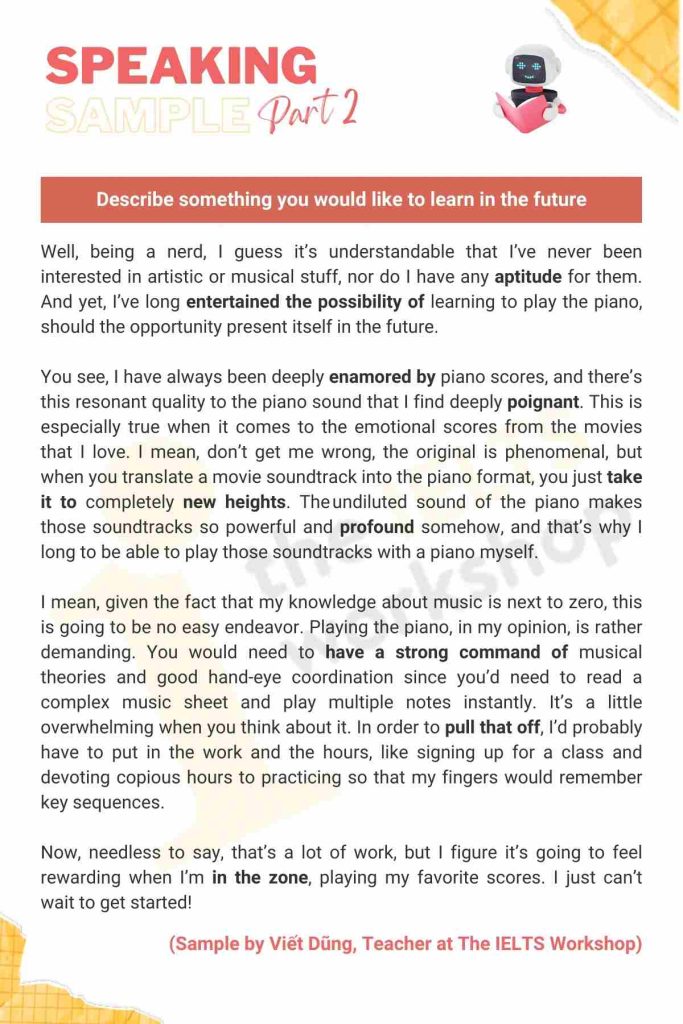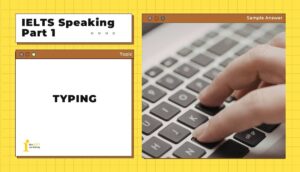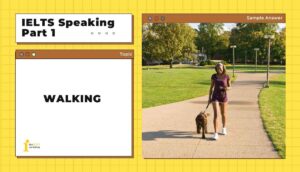Trong bài giải mẫu lần này, thầy Viết Dũng của The IELTS Workshop sẽ hướng dẫn bạn trả lời topic “Describe something you would like to learn in the future“ trong IELTS Speaking Part 2. Cùng tham khảo sample, từ vựng và một vài cách diễn đạt ghi điểm trong phần thi IELTS Speaking nhé.
Part 2: Describe something you would like to learn in the future
Describe something you would like to learn in the future
You should say:
What it is
How you would like to learn it
Where you would like to learn it
Why you would like to learn it
And explain whether it’s difficult to learn it
Dưới đây là bài mẫu cho topic “Describe something you would like to learn in the future“.
1. Bài mẫu (Sample)

2. Từ vựng (Vocabulary)
- Aptitude (N): Năng khiếu
- To be enamored with something: say mê, thích cái gì
- Poignant (Adj): Sâu sắc, thấm thía, cảm động
- Take something to new heights: Đưa cái gì lên tầm cao mới
- Profound (Adj): Sâu sắc
- Have a strong command of something: có kiến thức, sự thông thạo tốt về cái gì
- Pull something off: làm được việc gì đó khó
- To be in the zone: ở trong trạng thái tập trung và tự tin
- Entertain (v) the possibility of V-ing: suy nghĩ về khả năng làm gì đó
Part 3:
Bên cạnh Part 2, bạn hãy tham khảo thêm Part 3 cho chủ đề này nhé
What’s the most popular thing to learn nowadays?
At what age should children start making their own decisions? Why?
Which influences young people more when choosing a course, income or interest?
Do young people take their parents advice when choosing a major?
Besides parents, who else would people take advice from?
Why do some people prefer to study alone?
1. What’s the most popular thing to learn nowadays?
Well, right off the bat, I’d say it’s a foreign language, particularly, the global lingua franca: English. You see, in this age of globalization, businesses are expanding their activities to the international stage more than ever. This means that they now need to communicate with foreign partners, and this necessitates the need for their employees to have a decent proficiency in a second language. Guess that’s why in Vietnam, a lot of people have been flocking to language centers to study conversational English or the IELTS, including working adults and students. You also see numerous English centers springing up like mushrooms due to this trend too.
- Lingua franca: ngôn ngữ chung
- Proficiency (N): sự thông thạo cái gì
- To spring up like mushrooms: mọc lên như nấm
2. At what age should children start making their own decisions? Why?
Well, the usual age that people associate with autonomy would be 18, and I guess it’s because teenagers at this age have matured enough to think for themselves. They now know enough about the world and themselves to make important decisions in their lives, such as which major to choose for college or what line of work they want to pursue. At this age, they start to go to college and for many, it is the first step they take into adulthood, hence the reason why they ought to be given greater independence to decide for themselves.
- Autonomy (N): Sự tự chủ, độc lập
- To think for oneself: suy nghĩ một cách độc lập, chủ động
3. Which influences young people more when choosing a course, income, or interest?
Well, I suppose both factors have a bearing on youngsters’ decisions, although, for the majority of the time, I often find young people being heavily influenced by the former. Some youngsters are still pretty clueless about what profession to pursue by the time they have to enroll in a course or select a major in college; therefore, they often base their decision on the paycheck associated with the field of that course. For example, many young people would choose to take IT courses since it’s a line of work that is on the rise and often comes with a lucrative income. However, there are also young people who know what their passion is, and what they wanna do for the rest of their lives. Those people would definitely base their decisions on their interests due to their strong passion for that particular subject or discipline.
- To have a bearing on something: có ảnh hưởng lên cái gì
4. Do young people take their parents’ advice when choosing a major?
Well, considering that their parents are the most influential figures of authority in their life, yes. Some youngsters, especially in Asian countries, often come to their parents for advice on what major to do in college. This is because their parents have been in the workforce for many years, and may offer useful insights as to what occupation is easy for their children to pursue, or which ones suit their children best. They can also tell their children which fields are dying so that their kids could avoid pursuing those fields.
5. Besides parents, who else would people take advice from?
There are also their peers, although, in some cases, their friends would just be as clueless as they are. However, since their friends are the same age as they are, they would find it easier to put themselves in their friend’s shoes and may offer a more practical approach to the problem than parents. Older siblings can be another source of counselling, given the fact that they have had similar experiences to their younger siblings. The same can be said for a senior at school or work, who can also offer valuable advice.
- To put oneself in somebody’s shoes: đặt mình vào vị trí của ai đó
6. Why do some people prefer to study alone?
Maybe it’s because they’re introverts and do not prefer the company of others, especially when they’re learning something. There’s also the fact that studying alone could be more conducive to knowledge absorption, as you wouldn’t be dealing with distractions from other people.
Bài mẫu bởi thầy Viết Dũng – Giáo viên The IELTS Workshop
Các bạn có thể tham khảo các bài mẫu IELTS Speaking Part 2 của The IELTS Workshop cũng như tham gia bài test trình độ tiếng Anh và nhận tư vấn lộ trình miễn phí tại đây!
Nếu bạn muốn nhận Mentor 1-1 để hoàn thiện kĩ năng Speaking của mình trước khi bước vào kỳ thi, tham khảo ngay Khóa bổ trợ từng kỹ năng IELTS của The IELTS Workshop.









